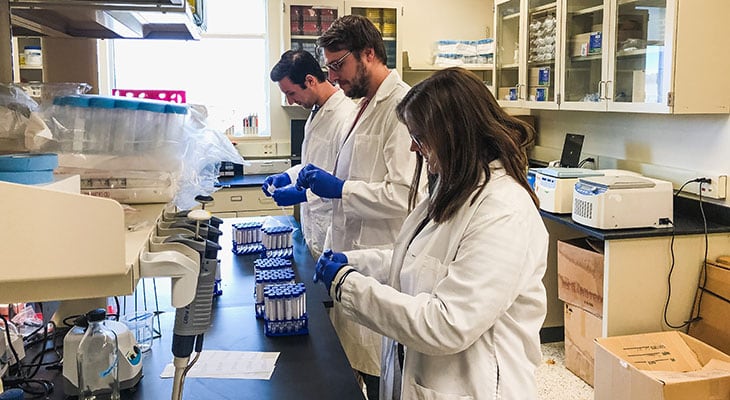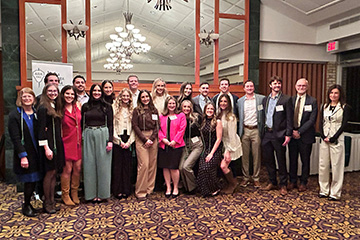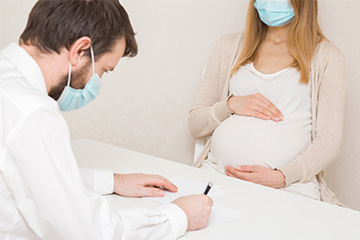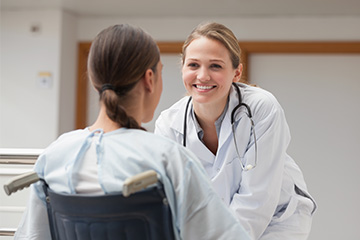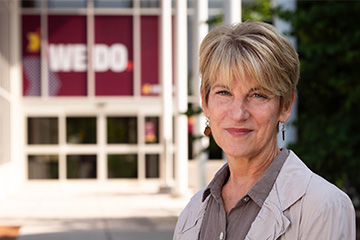Links in the COVID-19 testing chain
Students, faculty and alumni use their education and skills to help save lives
Central Michigan University students, faculty and alumni are playing key roles in a coronavirus testing chain that begins with nasal swabs in parking lots and ends in laboratories of the Department of Health and Human Services in Lansing.
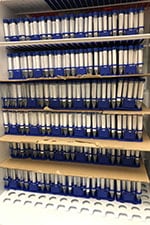 For example, the swabs taken recently in Saginaw with the help of College of Medicine students were put in vials of liquid called virus transport medium and delivered to labs to
determine if a person has the virus.
For example, the swabs taken recently in Saginaw with the help of College of Medicine students were put in vials of liquid called virus transport medium and delivered to labs to
determine if a person has the virus.
Helping to make that transport medium for mid-Michigan hospitals and testing sites are College of Medicine faculty Jesse Bakke and Ute Hochgeschwender.
"We were chosen because our area hospitals were short on help and supplies," Bakke said. "They needed the high-demand viral transport media. We make those types of media all the time in our labs."
So far, they have made 6,000 vials and expect to make another 2,000 next week, he said.
"Hopefully that gets us through the worst part of this crisis, but we can always make more," he said.
'Demanding but rewarding'
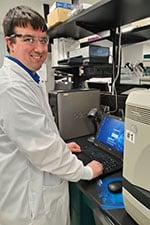
The bulk of those vials, especially early on, have been going to the DHHS labs where CMU microbiologist alumni Stephan Dawson and Laural Vibber work.
When Dawson, Vibber and other microbiologists at the Michigan DHHS receive a batch of vials, they go through a series of steps to extract the RNA from the sample and then amplify it to detect whether the specimen is coronavirus positive.
Up until a couple of weeks ago, the DHHS was receiving all the samples in the state, Dawson said. Now there are a number of hospitals able to do their own extractions.
"The work is constant and demanding, but it is rewarding," Dawson said. "I am glad that I am able to do my part. It's what I went to school for."
Skills grown in CMU labs
"Oddly enough, the DNA extraction kit that we used in Eric Linton's biology class at CMU is almost identical to the kit we were originally using to extract the RNA from COVID-19," said Dawson, who received his undergraduate and graduate biology degrees from CMU.
"His lab gave me a lot of practical experience."

Vibber also credits her experience in CMU labs for preparing her for her role in the COVID-19 battle.
Her advisor was biology faculty member Gregory Colores.
"He gave me a project that gave me full rein of the lab to figure out what I needed to do," Vibber said. "That gave me the confidence to do real research in the lab."
They both advise current and future students to get into labs as often as they can and do hands-on research.
"That's the thing about Central," Dawson said. "I was able to get experience in three different labs. That more than anything has helped prepare me for what I have done since then."
It's that collective lab experience that has allowed CMU to step up during this time of need.
"It's nice that we are all coming together to combat this virus," Bakke said.
